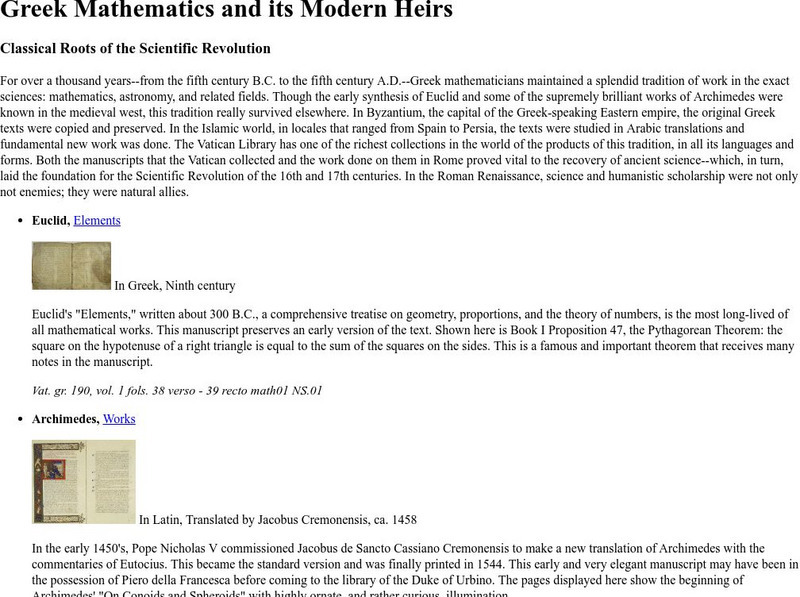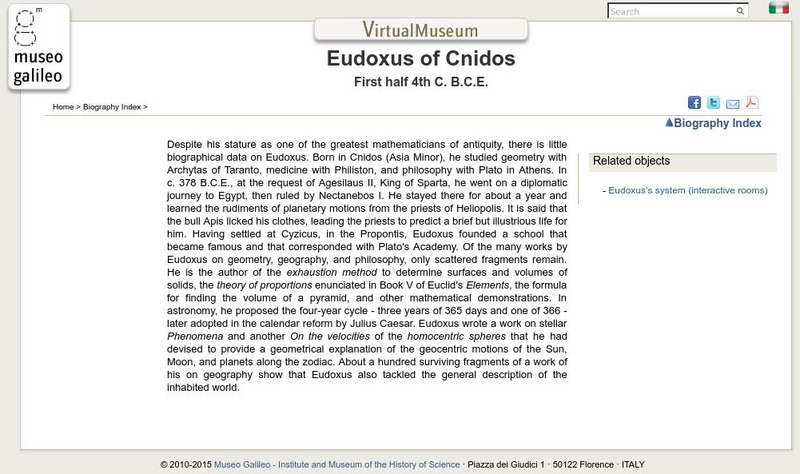Smithsonian Institution
National Air and Space Museum: Exploring the Planets: Ancient Times & the Greeks
In ancient times only five planets were known: Mercury, Venus, Mars, Jupiter, and Saturn. Learn about Greek astronomer Ptolemy's theory for the solar system that was to survive for fourteen centuries.
World History Encyclopedia
World History Encyclopedia: Greek Astronomy
Looks at the history of Greek astronomy from the 4th century BC on, and the major figures who contributed ideas. Includes a timeline of Greek science.
Other
Ellinogermaniki Agogi: Eratosthenes Experiment
A profile of the ancient Greek mathematician, geographer, and astronomer, Eratosthenes. Looks at his many accomplishments, including measuring the circumference of the Earth and the distance to the Moon and the Sun. Includes links to...
University of Virginia
University of Virginia: How the Greeks Used Geometry to Understand the Stars
An article explaining how the Greeks were able to use their science and mathematics to predict where astronomical objects such as the Planets could be found in the nighttime sky even though their underlying premise was that the earth did...
ibiblio
Ibiblio: Greek Mathematics and Its Modern Heirs
This ibiblio.org site discusses the "Classical roots of the scientific revolution," with concentration on the Greek mathematicians from the 5th century BC to the 5th century AD who "Maintained a splendid tradition of work in the exact...
Institute and Museum of the History of Science
Museo Galileo: Eudoxus of Cnidos
Not much is known about the life of Eudoxus, a famous Greek mathematician. This is a brief description of what we do know about him.





